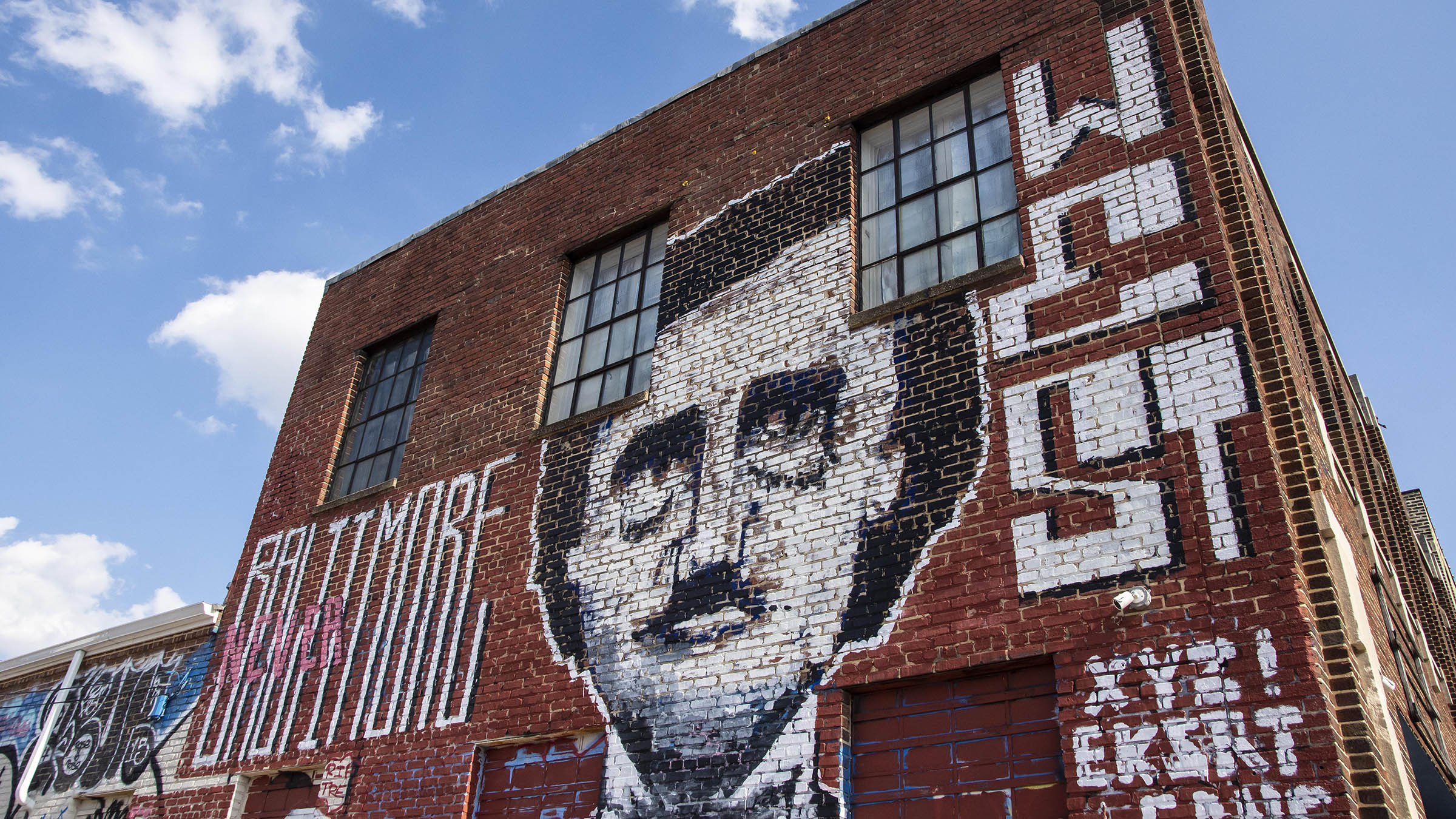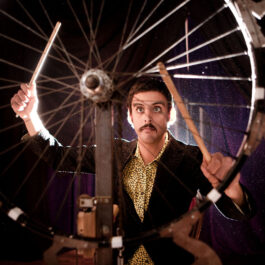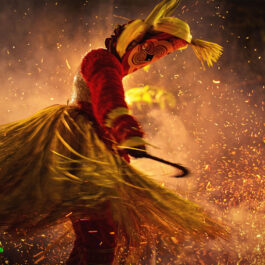Some shows are designed to help viewers kill half an hour before generally being forgotten about. Other shows achieve popularity among a certain audience of superfans. A few shows can even be called ‘classics’. However, there is an elite group of TV series that come with the label ‘must watch’ – shows so intelligent, so riveting and so unforgettable that even the most casual TV viewer will be enthralled.
And that’s where The Wire belongs. Twenty years on from its debut on US television, The Wire remains on the Mount Rushmore of television shows you simply must experience.
Yet David Simon’s multi-layered saga of justice, politics and education in the city of Baltimore was never an earth-shattering hit. At its peak, the show drew around four million viewers in America, compared with fellow HBO greats The Sopranos and Game of Thrones, which regularly topped 10 million each. It also didn’t win any major TV awards.
However, as time went on and boxset viewing became more common, the show’s five seasons grew in popularity to eventually be held as the gold standard in American television, a symphony of incredible writing paired with once-in-a-lifetime performances that, when viewed together, still hold up two decades after its inception.
So, why is The Wire so beloved, and what makes it even more pertinent to society today?
From The Streets To The Screen
It all begins with David Simon, the show’s creator and a former news journalist with the Baltimore Sun. Having written books – and later TV shows – based on his experiences covering the police beat in the troubled city, he came up with the idea of The Wire based on his and co-writer Ed Burns’ experiences on either side of public bureaucracy (Simon as a journalist, Burns as a detective).
To sum up what The Wire is ‘about’ is difficult due to the many layers of storytelling in each season. Chiefly, it follows the inner power struggles of the Baltimore drug industry, and the police who fight against reams of red tape to make even the smallest dent. It is the war on drugs played out on a vast battlefield where questions are raised about democracy, law enforcement and our society as a whole.
Simon once quipped at a speech held by The Observer newspaper that “everybody – liberals, conservatives, libertarians, Marxists, free market capitalists – they all eventually got to The Wire and found something that validated them.”
Baltimore’s reputation as a crime-saturated city was certainly heightened by the show, but Simon has always insisted that the reason that the stories resonate so much around the world is that these are universal problems: we see police trying to achieve the impossible with declining resources, overstuffed court systems, corrupt politicians and under-funded schools that fight to keep their students from landing on the street corners where drug dealers make their name. It’s an often pessimistic look at society, but from the crowded cop bars to the almost Shakespearean systems of power on the streets, it is a show that makes you feel every moment.
No Heroes – But Plenty Of Fan Favourites
As well as the system, The Wire is about the people moving within it. Conventional storytelling would have you expecting a hero cop trying to take down the evil criminals in order to make the city safe, all within an episode’s running time. Well, life doesn’t work like that, and neither does The Wire. There are a number of characters trying to do good on either side of the lines of justice, but their personalities or their methods may not always win your favour.
The closest this ensemble show has to a lead is Jimmy McNulty, played by Dominic West. A detective committed to solving cases by any means necessary, he follows many conventions for TV cops through his determination. However, in this realistic world, disdain for the process of law enforcement often sabotages his best-laid plans.
Along with partner Bunk Moreland (Wendell Pierce), we see how those good intentions are undermined by a disdain for due process and deep-seated personal problems. They drink, have difficult personal relationships, and – in McNulty’s case – an arrogance that makes him difficult to work with. Simon creates characters who are neither heroes nor villains, but rather people trying to navigate difficult roles in a broken system.
Moving up the ladder of justice, we find more heroes and villains. Perhaps most interesting is that of Tommy Carcetti, a politician who debuts in season three and rises to become mayor, only to find the price of winning is getting your hands dirty. Again, he’s a mixture of good and bad elements, something Gillen himself acknowledged.
In a 2011 interview with Den of Geek, the actor said: “It seems to me that most characters, in anything, are flawed in some way, just like most people… Carcetti, I would say, seemed just about right for a politician. What was interesting there was that, when we start getting to know him, he doesn’t even really know what’s driving him, what he wants. His political conscience only formed along the way, and then haplessness starts to creep in towards the end.”
On the criminal side of things, we are greeted with a pyramid of power as rigid as any Fortune 500 company. Drug dealers start out as young children on the corners selling products with the hopes of working their way up the ranks. At the top, we find imperious leaders like Avon Barksdale (Wood Harris), who rules over his industry with an iron fist, helped by his business-savvy second in command, Stringer Bell (Idris Elba).
Far from bland villains, there are moments where these criminals show loyalty and support to their contemporaries, as everyone tries to negotiate ‘The Game’ in the same manner as those in police uniforms.
Omar’s Comin’
Even in an ensemble as incredible as this, one character stands out throughout the show: Omar Little. Played by Michael Kenneth Williams, Omar is a stick-up man in Baltimore, a kind of Robin Hood figure who walks the streets robbing street-level drug dealers. He is the singularly most intriguing character in the show, because of the many contrasts that somehow make him seem more authentic.
On the streets, Omar is a fearsome figure, with an almost supernatural quality among those whom he targets. His signature whistle and trench coat prompting cries of “Omar’s comin’!” among young criminals, while in one court scene Omar is shown to be unfazed by even a cross-examining lawyer, drawing parallels between their professions. “I got the shotgun, you got the briefcase,” he reasons. “It’s all in The Game, right?”
Before his untimely and downbeat end in season five, Omar adds a litany of quotable moments as he brings the aura of the gunslinger to the 21st century. Behind closed doors, he is a caring partner to his boyfriend and takes care of his grandmother. Omar also lives by a strict code that keeps him one step ahead of his enemies, teaching lessons to his assailants (most famously: “You come at the king, you best not miss!”).
Omar smashes a number of TV conventions, chiefly the existence of an LGBTQ+ character whose sexuality is incidental rather than defining, and represents a positive force in his life. He’s a charming, captivating character, but like most people in The Wire, he is not to be revered. President Barack Obama, for one, named him as his favourite character, but was quick to clarify he was “not my favourite person.” Like every facet of Baltimore society, Omar is a three-dimensional character who is unforgettable precisely because he sidesteps every cultural expectation.
It Gave Your Favourite Stars Their Breakthrough
Great writing drew great performers, as Williams’ Omar can attest to. The late actor would go on to appear in lauded dramas like The Road and the Oscar-winning 12 Years a Slave, but his castmates would find just as much success having been launched on the show. Dominic West, who had found some success in supporting roles prior to the show, still continues to be a lead in hit series like The Affair and The Crown, while his on-screen love Amy Ryan would become an Oscar nominee for drama Gone Baby Gone.
It’s likely that most reading this will have heard of Idris Elba, whose intense performance as drug kingpin Stringer Bell would provide a platform for a stellar career on TV and in film. As well as being part of the Marvel Universe, he played none other than Nelson Mandela in the biopic of his life. “At the time it was a small role in a TV show; it was a massive opportunity for a) me to come out of poverty, and b) be seen on an HBO show,” Elba said in a 2019 podcast interview. “I don’t think it was ever written to be the legacy that it’s become.”
Surprisingly, one of the younger members of the cast turned out to be a superhero in waiting. Wallace, the ill-fated teenage drug dealer in the first season of the show, was played by none other than Michael B Jordan. In the years since, he has grown into one of the most in-demand stars in Hollywood, but he credits the show as his foot in the door. “I think a lot of the right people watched the show at that point in my career,” Jordan told Vanity Fair in 2019. “A lot of people in powerful places that I guess became fans at that young age, and so when I auditioned for the next show… it was always a lot of love. So that goes a long way.”
The Ultimate Lesson: Life Goes On
Perhaps the smartest element of the show is the recurring theme of the status quo. No matter how significant the bust, how devastating the death, or how scandalous the corruption, each season shows the characters in question moving on with their lives. It is, after all, a job, and no matter how ingenious the detective, they are a small part of a much bigger machine.
This message is never more evident than in the show’s final montage, where McNulty stops to look over the city and we are shown the fates of various characters. New police commissioners are announced, politicians are elected, and new faces spring up in the newsrooms. On the streets, the empty spaces left on the corners are soon filled, as suppliers and customers transact once again.
The personal journeys were striking, but when looked upon as a whole, it’s clear that life carries on very much as it did in season one. Audibly, this is underlined with the final music number, the original version of The Wire’s theme tune, “Way Down in the Hole” by Tom Waits. A different arrangement of the theme is used in each season, but the use of season one’s arrangement, performed by The Blind Boys of Alabama, hammers home the bitter truth behind the show: while one person can effect change in a small way, the system will continue to move as it always has. An incredibly thoughtful and intelligent ending, and even one with a little bit of hope: toward the end of the final season, we see long-term addict and informant Bubble (Andre Royo) seemingly on the path to a better life, reconnecting with his family and telling his story to inspire others.
The Wire is remembered for many things. It’s the show that didn’t really become a hit until it ended, and then became legendary. It’s the show that asks us to care about the anti-heroes despite their flaws. However, more than anything, it is the show where every episode ends with something to think about.
Some stories fade with time, or are let down by a lacklustre ending. The Wire stays timeless by taking the boiling pot of Baltimore and making it a mirror for the world. As long as society struggles with political corruption and crime, and continues hoping for better from the world, The Wire will find a place in the discussion.
As Omar rightly said, it’s all in The Game.














Sorry, the comment form is closed at this time.